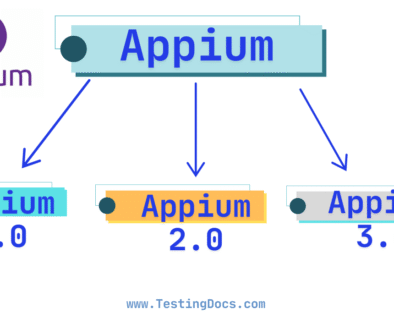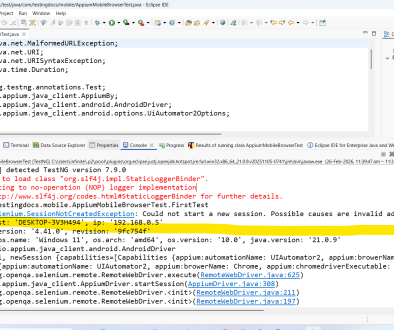Appium Server Components
Appium Server Components
Appium Server is the core component of the Appium automation framework, used for automating mobile applications (both Android and iOS). Appium Server is a Node.js-based web server that exposes a REST API. It listens for commands (like tap, scroll, type, etc.) from a test script and executes them on a real device or emulator/simulator through native automation frameworks such as:
-
UIAutomator2 (for Android)
-
XCUITest (for iOS)
Appium Server Components
The main Appium server components are as follows:
-
HTTP Server: Built on Node.js; handles REST API requests. The Appium server is written in Node.js. It is a cross-platform test automation framework that uses the WebDriver protocol to drive mobile apps (iOS, Android, etc.). Its core server component runs on Node.js and can be installed via npm.
- Session Manager: Manages automation sessions for each test.
-
Proxy: Forwards commands to native automation frameworks.
-
Drivers: Connect to platform-specific frameworks (like UIAutomator2 for Android or XCUITest for iOS).
How Appium Works
-
You write a test script in a language like Java, Python, or JavaScript using the Appium client library.
-
The client sends requests (in JSON Wire Protocol or W3C WebDriver protocol) to the Appium Server.
-
The Appium Server translates these requests into commands that the underlying automation engine understands.
-
The automation engine performs the actions (e.g., tap, swipe, input text) on the app running on the device.
-
The server returns responses (like success, element not found, etc.) back to the client.
Starting the Appium Server
You can start Appium server in two ways:
-
Command Line:
-
Appium Desktop App:
A GUI version that allows you to start/stop the server and inspect app elements visually.

